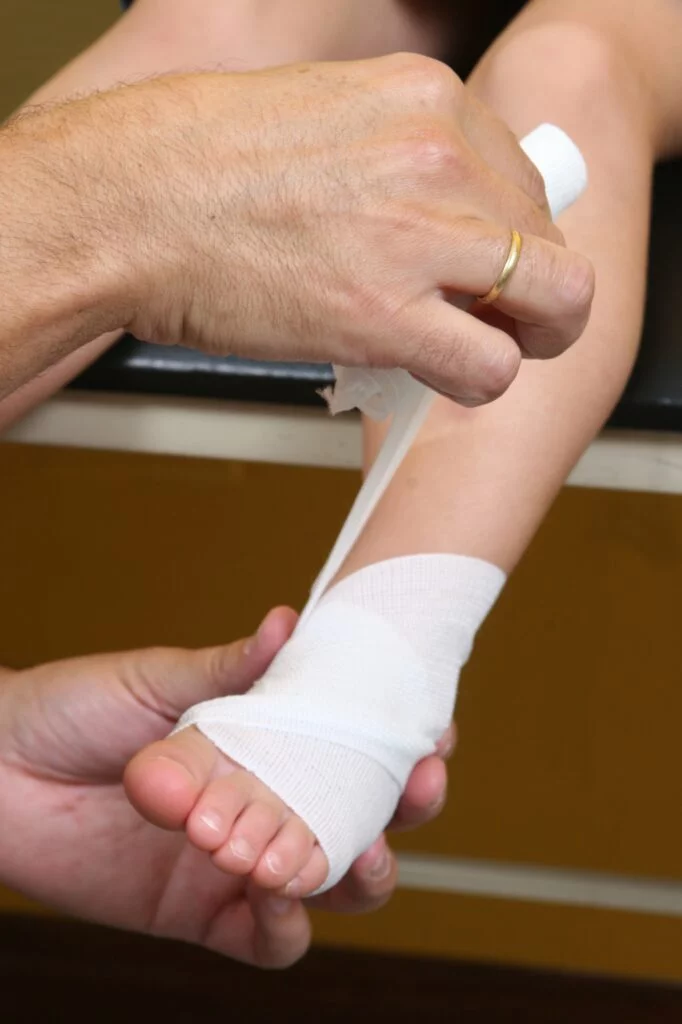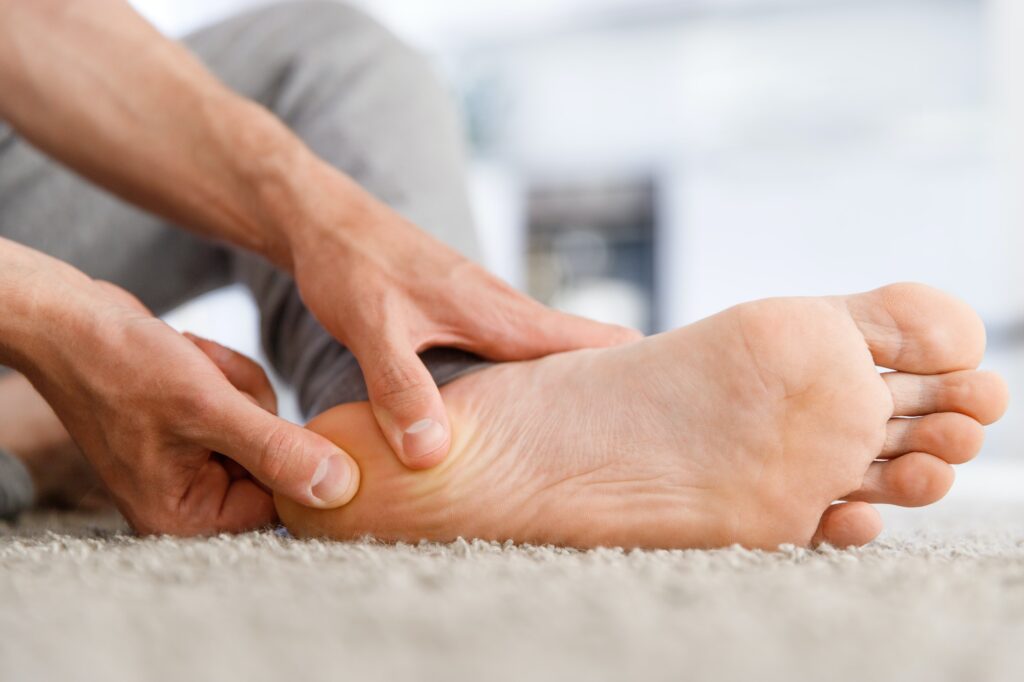Plantar Fasciitis Q & A
What is Plantar Fasciitis?
Plantar fasciitis is an inflammation of the plantar fascia in your foot, that causes heel pain.
The plantar fascia is a piece of fibrous connective tissue that runs from your toes back to your heel bone. If the plantar fascia is put under too much strain, it can develop tiny tears and become inflamed. The inflammation then causes a stabbing pain in your heel, which sometimes spreads to your arch.
Plantar fasciitis pain is often at its worst in the morning when you get up. Movement can reduce the pain, but moving too much or extended periods of sitting can make it worse again.
What Causes Plantar Fasciitis?
Plantar fasciitis is a result of overstressing the plantar fascia.
Factors that increase your chances of developing plantar fasciitis include:
- Age (between 40 and 60)
- Obesity
- Weight gain
- Flat Feet
- High arches
- Abnormal gait
- Standing for long periods
If your job requires you to walk or stay on your feet for hours at a time on a regular basis, that can trigger plantar fasciitis. Certain activities also increase your risk of plantar fasciitis, including running, jumping, ballet, and aerobic dance.Trying to keep going when you have plantar fasciitis can affect how you walk, causing additional complications like backache and knee or hip pain.
If you have symptoms of plantar fasciitis, please make an appointment with your doctor at Sacramento Foot and Ankle Center to obtain a correct diagnosis and start a treatment plan that may include the following options.
How is Plantar Fasciitis Treated?
Treatment approaches for plantar fasciitis include:
- Physical Therapy: Your podiatrist at Sacramento Foot and Ankle Center is likely to recommend a course of physical therapy to help stretch and strengthen your foot. Applying athletic tape correctly can also increase heel support and reduce pain.
- Night Splints: You can wear splints at night that stretch your plantar fascia and the Achilles tendon. This can help reduce the severity of your heel pain when you first get up and speed up your recovery.
- Custom Orthotics: Your podiatrist can design and create custom orthotics, which are inserts that you wear in your shoes. Custom orthotics help to take the pressure off the plantar fascia and allow it to heal.
- Injections: If your plantar fasciitis doesn’t respond to these therapies or is particularly severe, your podiatrist at Sacramento Foot and Ankle Center can administer steroid injections to reduce inflammation and pain.
If you have heel pain or think you may have plantar fasciitis, please contact Sacramento Foot and Ankle Center today or book an appointment online for a plantar fasciitis evaluation.


